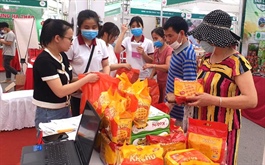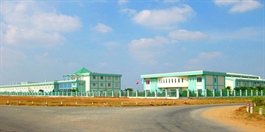VN businesses struggle to import intermediate goods from China amid COVID lockdown
VN businesses struggle to import intermediate goods from China amid COVID lockdown
Manufacturers reliant on raw materials imported from China are struggling now after China enforced strict COVID-19 lockdown policies to curb recent outbreaks.

The spokesperson for a truck manufacturing company in HCM City told Tuoi Tre (Youth) newspaper that his company has been waiting for a shipment of components from China for the last three months.
Usually, the wait is for a maximum of two months, he said.
Other businesses relying on imports from China are also having difficulties and even being penalised by unhappy customers.
Logistics businesses are unable to transport goods from China to Viet Nam by sea or land due to the former’s stringent safety procedures.
Phan Thi Thanh Xuan, deputy chairman of the Viet Nam Leather, Footwear and Handbag Association, said her industry imports around 70 per cent of its inputs from China, meaning the lockdown is disrupting supply.
Nguyen Duc Thang, director of Dap Cau Garment JSC, said his too company is unable to import from China.
Many of its materials are transported from ports in Shanghai, which is under a strict lockdown.
“It is impossible to find new raw materials suppliers quickly since China is the workshop of the world, supplying large volumes of materials at reasonable prices.”
The company is having to renegotiate delivery dates.
Businesses and trade groups need to be pro-active about adapting to China’s strict COVID policies, according to the Ministry of Industry and Trade.
It said it would help businesses access new markets to avoid relying on a single source, and make use of Viet Nam’s numerous free trade agreements.
Businesses should look to source raw materials domestically rather than abroad, it said.
Many industries such as textile and garment and leather and footwear export large volumes but rely heavily on imported materials since Viet Nam’s supporting industries are under-developed.
COVID outbreaks in supplying countries, including China, have been hindering local production in the last two years.





















